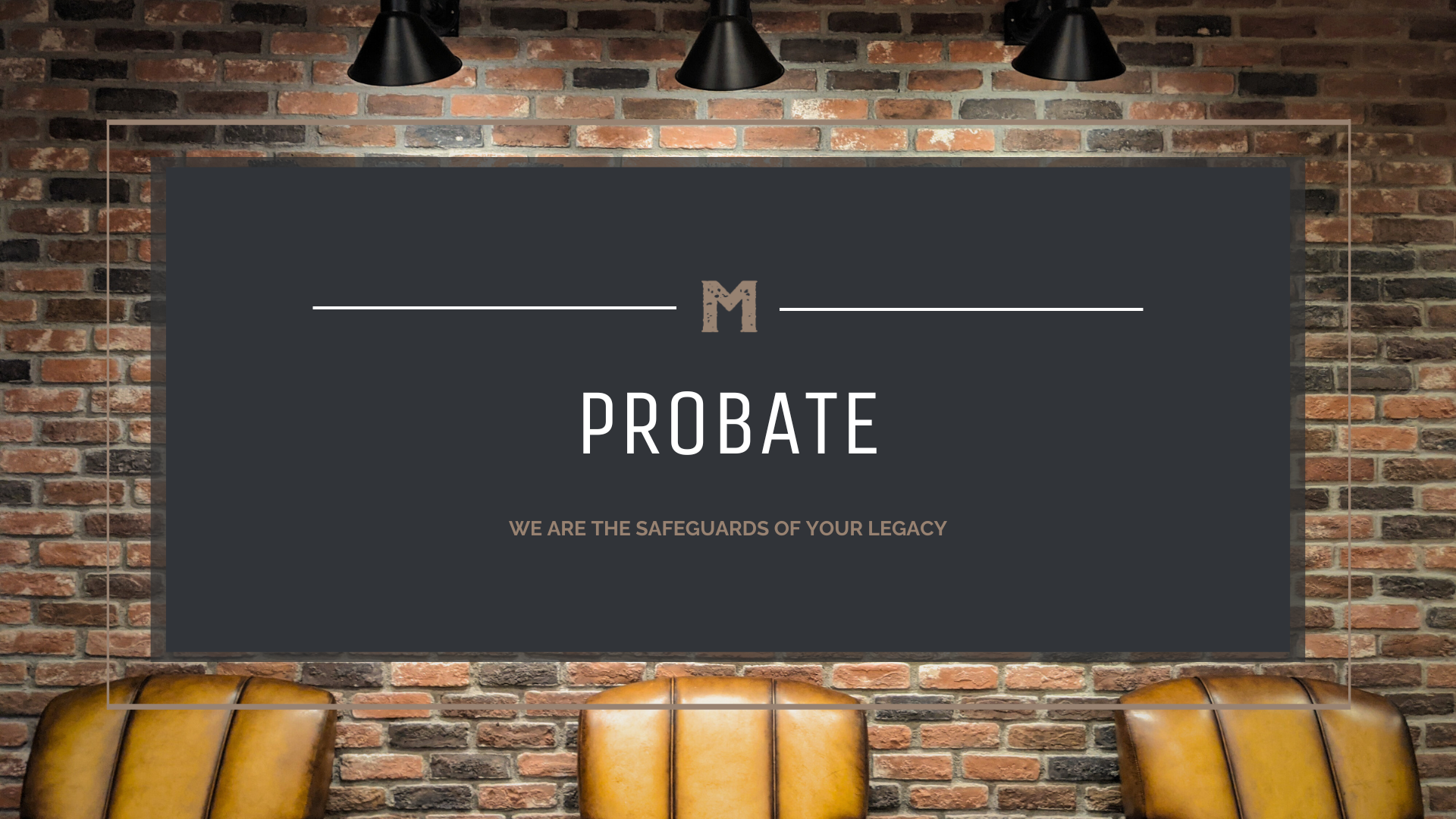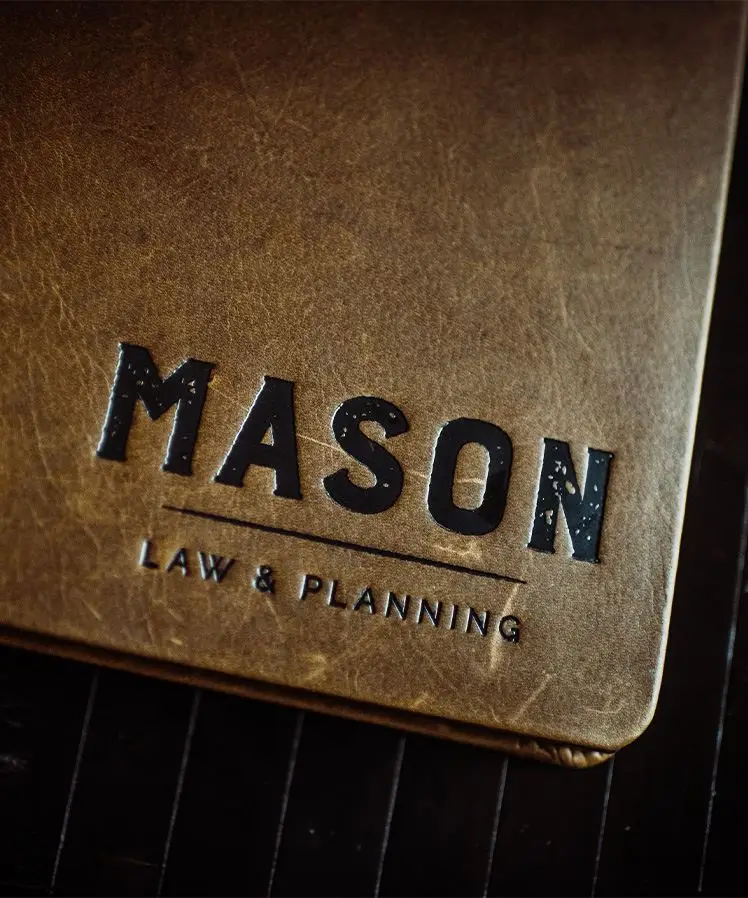
TRUSTS, WILLS, & BUSINESS FORMATIONS


MONUMENT PROBATE ATTORNEYS
If you have an estate plan or have been asked to represent a loved one who has recently passed, then it’s important to consider a legal process known as probate. Probate is an important part of ensuring that a will is executed according to the wishes of the person who created it. It is a court-supervised process that authenticates an existing will, ensures the legality of any transfers, and recognizes an estate administrator (executor/personal representative), or appoints one if necessary.
If you need to update a will to help your family avoid probate, modify a loved one’s will or trust agreement, or need any type of probate guidance, Mason Law & Planning Group is here for you. Our experienced attorneys can help you prepare your family for probate or administer your loved one’s estate through the legal process.
Call (719) 428-4495 or message us online to request a consultation with our probate lawyers in Monument, CO.
GUIDANCE AND SUPPORT DURING THE PROBATE PROCESS
At Mason Law and Planning Group, our experienced probate attorneys are here to provide you with the guidance and support you need during the probate process. We understand that this can be a challenging and emotional time, and we are committed to helping you navigate through it with ease.
Our team of dedicated attorneys has extensive knowledge and experience in handling probate cases in Monument, CO, and the surrounding areas. We will work closely with you to ensure that your loved one's assets are distributed according to their wishes and that all legal requirements are met.
Some of the ways we can assist you during the probate process:
-> Preparing and filing necessary legal documents
-> Identifying and valuing assets
-> Notifying creditors and settling outstanding debts
-> Resolving any disputes or challenges that may arise
-> Ensuring proper distribution of assets to beneficiaries
By entrusting your probate case to our skilled attorneys, you can have peace of mind knowing that your loved one's legacy is in capable hands. We will handle all the legal complexities, allowing you to focus on grieving and healing.
COMMONLY ASKED QUESTIONS
WHY IS PROBATE IMPORTANT?
Probate is important because it ensures that a will is executed according to the wishes of the person who created it. It provides a legal process to authenticate the will, validate any transfers, and appoint an estate administrator if needed. This helps protect the rights and interests of all parties involved.
DO ALL ESTATES GO THROUGH PROBATE?
Not all estates go through probate. Whether or not an estate goes through probate depends on various factors, including the type and value of assets, how they are titled, and whether there is a valid will in place. Consulting with an experienced probate attorney can help determine if probate is necessary for a specific estate.
HOW LONG DOES THE PROBATE PROCESS TAKE?
The duration of the probate process can vary depending on the complexity of the estate and any potential legal challenges. On average, probate can take several months to a year or more. It is important to consult with a probate attorney to understand the specific timeline for a particular case.
CAN I AVOID PROBATE?
There are certain estate planning strategies that can help individuals minimize or avoid probate. These may include creating a revocable living trust, designating beneficiaries on certain assets, and gifting assets during one's lifetime. Consulting with an estate planning attorney can provide guidance on how to best avoid or minimize probate.
WHAT IS THE ROLE OF AN ESTATE ADMINISTRATOR?
An estate administrator, also known as an executor or personal representative, is responsible for managing the estate during the probate process. Their duties may include gathering and inventorying assets, paying debts and taxes, distributing assets to beneficiaries, and handling any legal matters related to the estate. It is important to choose a capable and trustworthy individual for this role.
CLIENT REVIEWS




UNDERSTANDING THE PROBATE PROCESS IN COLORADO SPRINGS & THE SURROUNDING AREAS
You may have heard that it’s important to keep assets out of probate. However, if the main functions of probate are authenticating wills and supervising transfers, then why do people try to avoid it?
Unfortunately, there are many factors that could significantly complicate the probate process. For one, if a person’s last will and testament or trust arrangements were not recently updated to account for a significant life change, then a deceased person’s surviving family members might struggle with how to accommodate those changes. For example, oftentimes a will or trust might not include recently born children or grandchildren. If the decedent intended to provide for these children, the family or personal representative may need to petition the court to modify the existing arrangements.
In these situations, the probate court decides whether the proposed changes were actually the intent of the decedent. Because their decisions are legally binding, they retain a lot of power over the actual distribution of assets. The same is true for when a person passes away without a will. When this happens, the probate court will determine (based on the law) who is entitled to the deceased person’s assets and property. This is known as instate succession. They will appoint a personal representative (or executor) in the absence of one, to help them facilitate this process.
Finally, probate can also be difficult when family members disagree about the execution of an estate plan. In some cases, they may contest the validity of the will altogether, or they may argue over the proper distribution of assets. This can significantly lengthen the probate process and cause stress, tension, and division among family members.


AVOIDING PROBATE & ESTATE ADMINISTRATION
No matter where you’re at in the estate planning or estate administration process, Mason Law & Planning Group is here for you. Our attorneys are dedicated to facilitating your wishes and those of your loved ones. With over 30 years of combined experience, our attorneys have the skills needed to help you ensure smooth asset transfers — even when life takes unexpected turns.
HOW TO AVOID PROBATE IN COLORADO
Probate is the legal process through which a deceased person's assets are distributed to heirs, beneficiaries, and creditors. While probate is a standard process in Colorado, there are several strategies you can use to potentially avoid or minimize the need for probate:
-> Revocable Living Trust: One of the most effective ways to avoid probate is to create a revocable living trust. You can transfer your assets into the trust during your lifetime, and these assets will be managed and distributed according to your instructions upon your death, without going through probate.
-> Beneficiary Designations: Certain assets, such as life insurance policies, retirement accounts (like IRAs and 401(k)s), and payable-on-death (POD) or transfer-on-death (TOD) accounts, allow you to name beneficiaries. When you pass away, these assets are directly transferred to the beneficiaries, bypassing probate.
-> Joint Ownership: Owning property jointly with someone else, such as a spouse, can allow the property to pass directly to the surviving owner upon your death. This is known as "joint tenancy with rights of survivorship" or "tenancy by the entirety."
-> Transfer-on-Death Deeds: Colorado allows for transfer-on-death deeds, also known as beneficiary deeds, for real estate. With this type of deed, you can specify a beneficiary who will automatically inherit the property upon your death, without the need for probate.
-> Gifts: You can gift assets to beneficiaries during your lifetime, reducing the size of your estate subject to probate. However, this approach has potential tax and financial implications, so consult with a professional before proceeding.
-> Payable-on-Death Bank Accounts: You can set up bank accounts with payable-on-death designations, allowing the account to pass directly to the named beneficiaries upon your death.
-> Estate Planning Documents: Create a comprehensive estate plan, including a will, healthcare directive, and power of attorney. While a will may still go through probate, having clear instructions in place can streamline the process and minimize disputes.
It's important to note that each individual's situation is unique, and the best approach to avoid probate will depend on your assets, goals, and family circumstances. Consulting with an experienced estate planning attorney in Colorado is essential to ensure you choose the right strategies that align with your needs and preferences.
Contact our office if you have any questions about intestate succession or would like to discuss our probate counseling and estate administration services with our Monument probate lawyers.
CONTACT US TODAY


